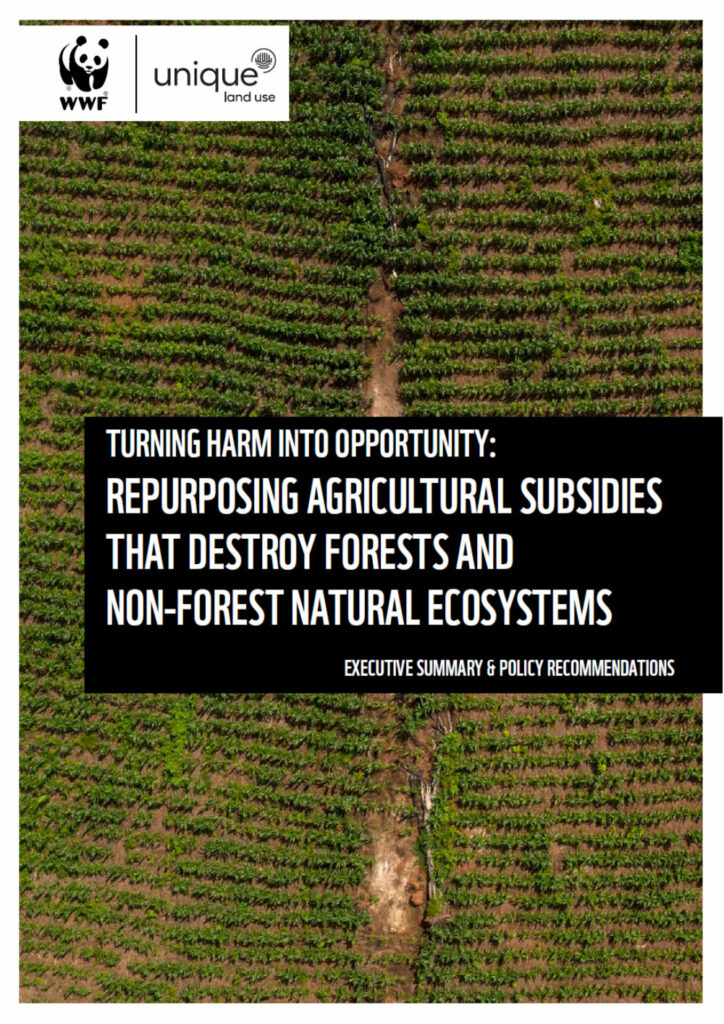Signe Nelgen, Simon Charré, unique land use GmbH; Pablo Pacheco, WWF
Every year, governments spend US$470 billion on agricultural subsidies that harm biodiversity, and forests and other natural ecosystems. Repurposing these subsidies offers immense opportunity to halt and reverse the loss of forests and transition toward sustainable food systems. Reforming harmful subsidies, conserving forests and other natural ecosystems, and transforming food systems are all high priorities on the international agenda:
- Under Target 18 of the Global Biodiversity Framework (GBF), 196 countries agreed to identify and eliminate, phase out or reform subsidies and other incentives that harm biodiversity and to scale up positive incentives.
- Through the Glasgow Leaders’ Declaration, 145 governments agreed to work collectively to halt and reverse forest loss by 2030, including by redesigning agricultural policies and programmes to incentivize sustainable agriculture.
- At the 2023 UN climate conference in Dubai, the UAE Declaration on Sustainable Agriculture, Resilient Food Systems, and Climate Action emphasized the need to reorient policies and public support for agriculture and food systems to maximize the climate and environmental benefits and minimize harmful impacts, including by conserving and restoring natural ecosystems.
Despite the widely acknowledged need to repurpose harmful subsidies, little has been done to define guidelines and criteria to guide this process. To reduce harm to nature and to achieve the socioeconomic and environmental targets of subsidies in a “just, fair, effective and equitable way” (GBF Target 18), repurposing strategies need to be carefully crafted. Essential components include reducing adverse impacts, safeguarding remaining forests and other natural ecosystems, empowering small producers, promoting research and innovation in sustainable production, and ensuring food security. Various enabling conditions need to be put in place, and trade-offs need to be carefully managed.
By scrutinizing how agricultural subsidies affect forests, this report aims to inform policy and subsidy reform processes. It introduces a framework for identifying and repurposing subsidies that harm forests and non-forest natural ecosystems, and outlines potential repurposing options and complementary measures to support the shift to sustainable production systems that provide food security and resilient livelihoods, while contributing to carbon sequestration and biodiversity conservation. Two case studies from Brazil and Malawi offer an in-depth look into forestharming subsidies and opportunities for reform. The report concludes with recommendations for action at international and national level.
